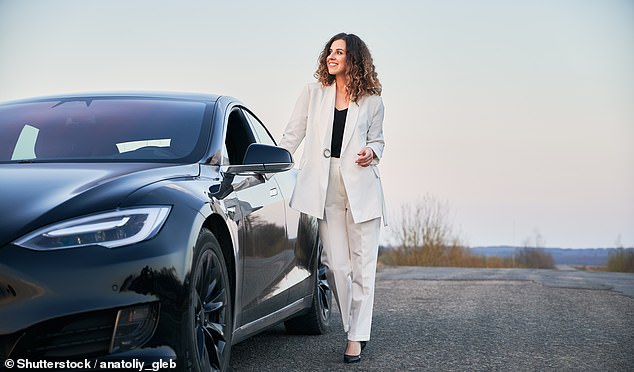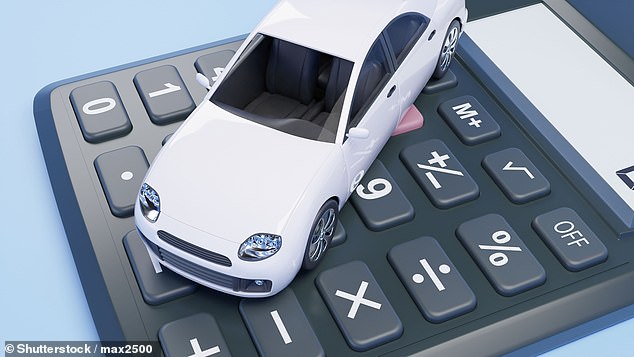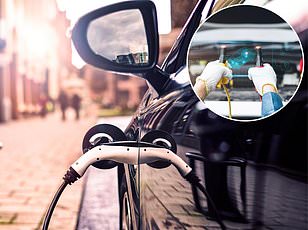EV salary sacrifice explained: How to save 40% on a new electric car
- Salary sacrifice is one of the best ways to get an electric car more affordably
The salary sacrifice tax perk designed to boost EV ownership is an essential thing for all electric car buyers to consider.
Employees whose work offers salary sacrifice scheme can potentially save 40 per cent on the cost of a brand new electric car.
By effectively allowing buyers to get an electric car from pre-tax earnings, salary sacrifice is one of the best ways to make a new EV more affordable, especially as they are still expensive compared to petrol and diesel cars.
And despite rumours to the contrary, salary sacrifice was left alone in the Autumn Budget.
This is not surprising considering its popularity: research has found EV salary sacrifice is up 68 per cent year-on-year.
So, how can you use this to your advantage to get an EV through an employer benefit scheme and how does it save you money? We explain.
What is salary sacrifice?

EV salary sacrifice is a tax-advantaged formal arrangement between an employer and an employee, which allows employees to give up a portion of their salary for a non-cash benefit – in this case an electric car
Salary sacrifice is a tax-advantaged formal arrangement between an employer and an employee which allows employees to give up a portion of their salary for a non-cash benefit – in this case an electric car.
As the employee you benefit because the portion of the salary you've given up for your car is not subject to income tax or NICs, so your taxable salary is reduced.
Salary sacrifice is most commonly used for workplace pension contributions and cycle-to-work schemes and allows the employee to pay out of pre-tax earnings, saving on both income tax and national insurance.
Salary sacrifice can also be used more widely but to limit the system being used for widespread tax dodging, the tax benefit is clawed back on most things through benefit-in-kind rates, which we explain below.
Pensions, electric cars and bicycles are notable exceptions to this clawback.
How does salary sacrifice for EVs work?
If you sign up for an EV salary sacrifice then you will be getting a car on a finance scheme that works in a similar way to popular personal lease and PCP deals.
You choose a car from a list of vehicles approved by your employer, based on your budget, needs and wants.
You pay a monthly payment over a set period of time, which is effectively funding the depreciation in the car's value. Unlike with a PCP deal, however, there may not be the option to make a balloon payment and take ownership at the end.
You lease the EV from your employer, who leases it from a third-party firm – and your EV can be for either business or personal use.
The amount your car costs to lease each month is deducted from your salary before tax. Typically schemes are between two and four years.
As long as you're over 18 and don't have a driving licence without too many points you should be eligible.
How does salary sacrifice get an electric car for less?

Salary sacrifice means that your taxable income is reduced and you get servicing, maintenance and insurance of your EV included usually too
Monthly payments for an electric car through salary sacrifice effectively come out before tax - you are swapping your income for your company making a payment for the car.
As your income is lower, you do not pay the income tax and national insurance that you would have done on that sum, so, by getting an electric car via salary sacrifice there's a great cost-saving benefit.
Basic rate taxpayers save 20 per cent income tax and 8 per cent national insurance on the monthly payment, higher rate taxpayers save 40 per cent income tax and 2 per cent national insurance, and additional rate taxpayers save 45 per cent income tax and 2 per cent national insurance.
Salary sacrifice also lowers taxable income and so can help the removal of child benefit above £60,000 and mitigate the 60 per cent tax trap when the personal allowance is removed above £100,000.
Another big benefit of salary sacrifice is that servicing, maintenance and insurance are usually bundled into the monthly cost, so in the case of an electric vehicle you only pay for charging.
As many offices offer charging points at work as well, you might even be able to charge up for free.
What tax do you pay on EV salary sacrifice?
Electric cars through salary sacrifice are not entirely tax-free and a small amount of the benefit is clawed back.
Currently you pay benefit in kind tax (BIK) on electric cars. BIK is a tax on benefits you get from your employer on top of your salary.
For EVs it is very low but rising at a rate of 1 per cent a year. Currently it's fixed at 2 per cent for zero and low emission cars – EVs – but by 2027/2028 BIK will be 5 per cent.
In contrast, for petrol and diesel cars BIK can be all the way up to 37 per cent.
Low BIK rates are a huge subsidy and tax benefit of EVs and make them perfect for salary sacrifice schemes.

If you lease a Tesla Model Y which costs £500 a month and you fall into the 40 per cent tax bracket, you would pay £200 tax on that £500, leaving you with £300. Effectively then your Tesla Model Y is only costing you £300 via salary sacrifice
How the EV savings work with salary sacrifice
If you want an EV for £500 a month and after looking at the options on offer through your work salary sacrifice scheme, you decide on a new Tesla Model Y, this is how the financial benefit would work.
The £500 monthly payment is salary sacrificed and deducted from your income.
If you fall into the 40 per cent tax bracket, you would have paid £200 income tax on that £500, leaving you with £300. But by salary sacrificing the money, it isn't taxed.
Effectively, then your Tesla Model Y which costs £500 to lease is only costing you £300.
And as you don't pay 2 per cent national insurance on the £500 either, you'll benefit from a further saving.
The entry-level Tesla Model Y costs £46,990 and scores 0g/km CO2 emissions which means that BIK tax is currently just 2 per cent. It's rising by 1 per cent each year, so for 2025/26 it'll be at 3 per cent.
At the time of writing £939.80 is taxable, which (if you're a 40 per cent taxpayer) you'll pay 40 per cent on.
In a year that's just £375.92 you'll pay in BIK, or £31.33 a month.
Salary sacrifice in the current EV climate - the easiest way to switch?
Salary sacrifice is proving an increasingly popular way to get a new electric car.
The British Vehicle Rental and Leasing Association recorded that salary sacrifice leasing schemes were up 68 per cent year-on-year (YOY) in Q3 2023.
And 91 per cent of salary sacrifice cars in Q1 2023 were fully electric.
A 2022 YouGov survey found that once employees fully understood the benefits of salary sacrifice, three quarters (74 per cent) said they would like the scheme on offer at their workplace.
In October 2024 EV salary sacrifice provider The Electric Car Scheme said it had seen significant overall growth of 160 per cent due to demand for both new and used EVs via salary sacrifice.
And the availability of schemes is set to increase.
In the last quarter of 2023 HR Magazine found that more than two thirds (68 per cent) of small and medium-sized enterprise (SMEs) were considering offering electric car salary sacrifice to employees, with more than half (56 per cent) planning to implement it in the next 12 months.
Considering the Government has recently reaffirmed the 2030 ban on new petrol and diesel vehicles, drivers are increasingly aware they are required to make the switch to zero emissions.
Many are looking to employers to help them make this switch, at the same time businesses are trying to transition to a greener model and reduce carbon footprint, as well as keep employees happy.
Electric car salary sacrifice provides people with a way into an electric car while saving money and with very little hassle - one reason why it's so popular.
Can you lease used EVs via salary sacrifice?

Used EVs aren't available through all salary sacrifice providers - it depends on the scheme
Theoretically yes, but in practice because employers don't lease the car to you themselves but via a dedicated salary sacrifice company then you'll only be able to choose from the EVs the salary sacrifice leaser offers.
However this is usually a very wide range of EVs, so it's unlikely you'll have an issue finding one for you.
Not all salary sacrifice providers offer leasing of used EVs - it is on a scheme by scheme basis - so check your employer's scheme to find out.
Can you buy the EV when the lease period ends?
Usually, as is the default for salary sacrifice schemes, you can only give back the car - but some schemes may let you buy the EV at its market value at the end of the agreement.









































